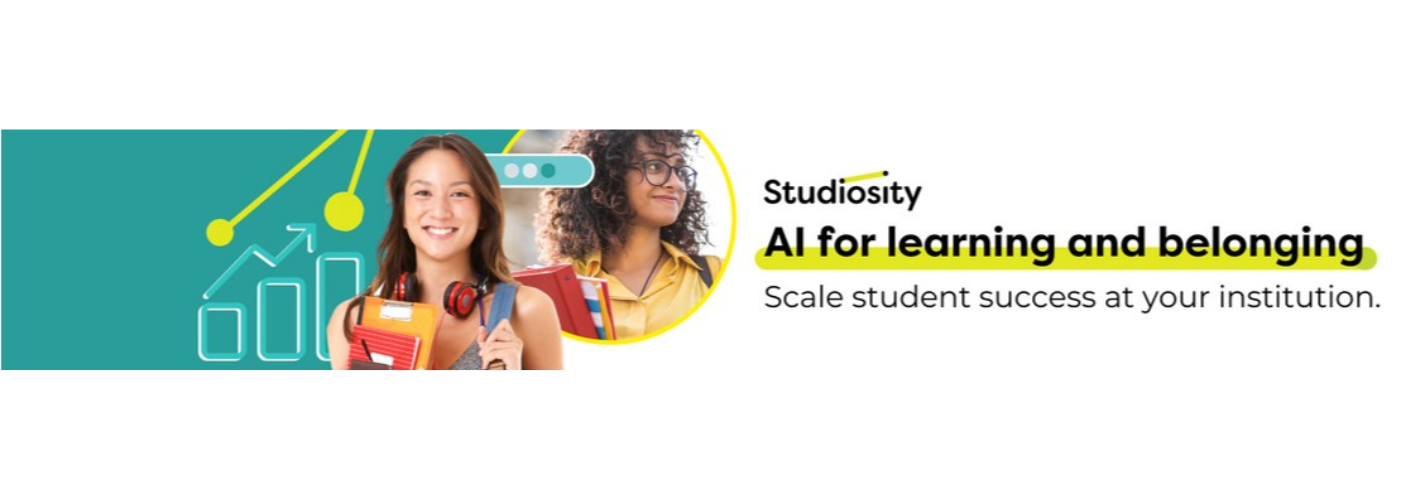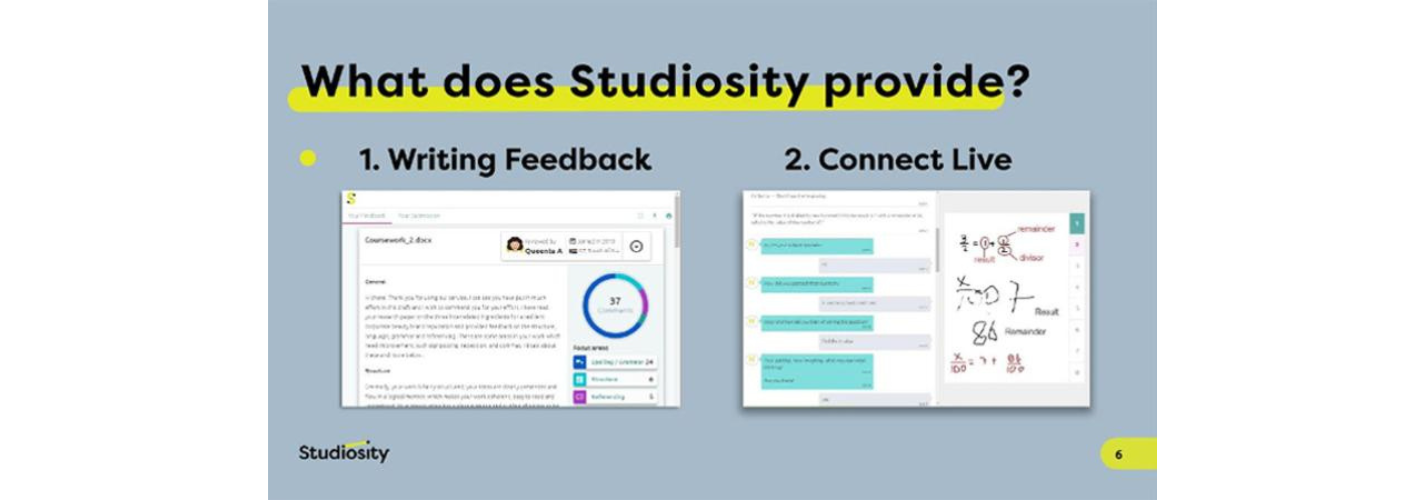
Scope
As one of the first EdTech companies established in Australia, Studiosity has been improving learning outcomes and increasing life chances for students for more than two decades.
Universities partner with Studiosity to deliver personalised academic support and peer mentoring at scale to every student. In 2024, students get AI-powered, fast, formative feedback 24/7/365 and universities get to deliver and measure learning outcomes at scale to every enrolled student.
Research has repeatedly demonstrated enhanced academic outcomes, retention and wellbeing for students who use Studiosity.
Challenge
Studiosity’s mission has always remained steadfast: to increase life chances for all students everywhere.
“The problem we’re currently solving is the need for personalised learning experiences delivered at scale and with the convenience of 24/7 ubiquitous access,” says Studiosity founder Jack Goodman.
“In particular, universities need high-quality, formative feedback on academic writing – and for students, it needs to be ‘right now.”
Further, peer-to-peer connection is critical as higher education becomes massified in Australia and across the globe.
“Quality, scaled support now means academic as well as interpersonal scaffolding for students. We’re going to enrol tens of thousands, maybe even more than a hundred thousand students at some universities,” Jack explains.
“How do you keep students engaged and provide the kind of support they need to feel they belong at a university and can succeed? Through peer learning and flexible support.”
Solution
Studiosity is driven by an ethos of continuous improvement. Starting in 2018 and accelerating in 2023, the organisation embraced the latest in artificial intelligence technology by enhancing its core services with the capability of a large language model.
As a result, today Studiosity’s writing feedback service delivers personalised feedback to students in about 2 minutes, 24/7 online study skills discussion, and peer-to-peer mentoring.
Humans in the Loop and AI. While AI in education can automate, enhance, scale, and increase access to learning experiences, human inputs are necessary to ensure the student experience and academic delivery stays validated and protected.
As such, institutions and Governments have established principles and requirements for the use of AI in education settings, urging or requiring HEIs to show proof of ability to: manage bias, prioritise human thinking, protect learners’ motivation, protect human autonomy, facilitate peer interaction, and cognitive ability, consult teachers, validate outputs, validate ethics and outputs before presenting to students – that is, humans in the loop.
“A comprehensive humans in the loop system – in the form of quality assurance teams, peer connection, managers, teachers, administrators, experienced feedback specialists, and academic leaders – can address ethical concerns, apply lived experience, adapt to custom needs, discuss subjective feedback, navigate cultural nuances and communities, and adhere to agreed principles,” said Jack.
“This is integrated into all our partners’ services because it is ethical and best practice for AI in education.”
New AI technology, based on years of evidence. To measure the platform’s efficacy and continuously improve it, Studiosity conducts ongoing research.
“We’ve conducted close to two dozen studies with university partners around the world that have measured everything from impact on pass rates and GPAs, differences in impact for students from international or non-English speaking backgrounds, and senses of belonging and wellbeing,” Jack explains.
“We also run symposia and advisory groups where we share what we’re working on with our university partners and ask them to share their feedback on what’s working for them and what they would like to work better or differently. We’ve learnt so much from that feedback and our partners know we’re 100% focused on solving their problems.”

Outcomes
The research Studiosity has conducted with its university partners has revealed a wide range of improvements in student and staff outcomes. These include:
- A GPA increase ranging from 0.12 to 1.63 (Macquarie University, Western Sydney University and James Cook University)
- An 8% increase in course average (University of Adelaide)
- 79 to 84% of students stated they better understood how to write academically after using Studiosity in a 2018 study
- 27% of Studiosity users cited high life satisfaction versus 14% of the general UK student population
- Only 16% of the UK student population had low anxiety whereas that number jumped to 34% in Studiosity users
- Retention increased between 6 and 44% (Curtin University, La Trobe University and CQUniversity University)
Key learnings
If there’s one thing Jack has learnt after running an EdTech company for 20 years, it’s that there are no shortcuts to success.
“Gathering evidence and making sure all the research is compliant with universities’ ethics frameworks takes time,” he says. “It can take years and that’s why there aren’t a lot of EdTechs that are overnight successes.”
Jack advises EdTech founders to join the EduGrowth community to obtain the intel and support they need on their journey.
“I was so pleased when EduGrowth started because I remember the days when there was no EdTech industry and nobody to talk to,” he says.
“The one thing I continue to hope for is that the sector realises the value of having locally designed, built and engineered tools to meet its needs. They will be much more effective and appealing than tools that come from overseas.”



